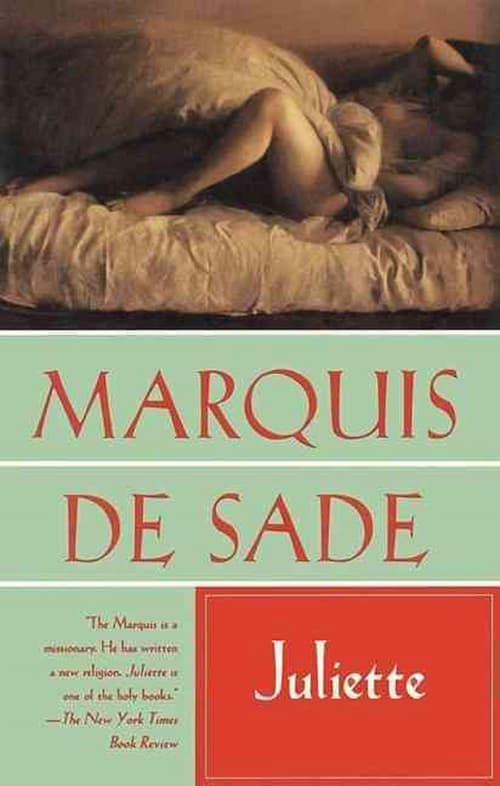I rarely do this, but there’s another review that says it so well, I’m going to quote it instead of trying to sum up my own thoughts:
Sade the philosopher is in force, and his treatises — like his other novels delivered by key characters — are interspersed with the sex and violence one expects. And yet…is it Sade who speaks through his canon’s most libertine characters, or is he an ironist an order of magnitude more accomplished than Swift? I recommend a brief familiarity with his biography and political beliefs, and probably reading his Philosophy in the Bedroom, before reading Juliette. When a reader falls in stride with Sade, and any prudish shock wears off, it becomes easier to discern what’s true to his idealistic vision of humanity, what’s buffoonery, and what are prescient satirical riffs and exposés of the cultural idiosyncrasies he endured in eighteenth-century France. Otherwise Sade can appear to be a mass of contradictions. He respects the state and the institution of democracy yet rejects law. His characters expound on their superiority over other living things yet he writes brilliantly on the equality of animals and humans. And so on.
Agreed. Read Philosophy in the Bedroom first, acquaint yourself with Sade the philosopher instead of Sade the grotesque distortion, and proceed accordingly.
The one thing I’d argue is that instead of only appearing to be a mass of contradictions, he is a mass of contradictions, intentionally, provocatively, profoundly. As I said before, I get the feeling he very pointedly and gleefully contradicts himself, over and over, just to get readers to think. Don’t take it all as read, even what he’s saying. Think you get his point? Wrong again, think some more.
